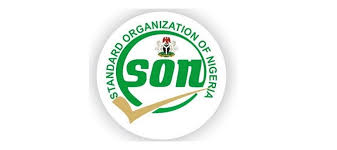The Pervasive Menace of Substandard Roofing Sheets in Nigeria: A Threat to Safety, Economy, and Industry Integrity
The Standards Organisation of Nigeria (SON) has sounded a resounding alarm regarding the escalating influx of substandard roofing sheets into the Nigerian market. This disturbing trend poses a significant threat to lives, property, and the overall integrity of the building industry. The proliferation of these inferior products, coupled with faulty installation practices, has created a precarious situation demanding immediate and comprehensive action. The SON has emphasized the critical need for adherence to Nigerian Industrial Standards (NIS) throughout the roofing sheet value chain, from manufacturing to installation.
The prevalence of substandard roofing sheets stems from various factors, including unscrupulous manufacturers cutting corners to maximize profits, a lack of adequate quality control measures, and the influx of imported subpar materials. The consequences of using these inferior products are far-reaching and devastating. Substandard roofing sheets are prone to premature deterioration, leading to leaks, roof collapses, and the release of hazardous chemicals into the environment. These failures not only compromise the structural integrity of buildings but also endanger the health and safety of occupants.
The SON has identified several key parameters that define the quality of roofing sheets, including thickness, tensile strength, and chemical composition. Galvanized roofing sheets, painted roofing sheets, and stone-coated roofing sheets must all meet these stringent requirements. Unfortunately, many manufacturers and installers flout these standards, contributing to the widespread problem of substandard roofing. The use of thin, weak materials, improper coatings, and inadequate installation techniques contribute to premature failures and pose serious risks.
Poor workmanship during installation is another major contributor to roofing failures. Inadequate nailing, screwing, and alignment can compromise the structural integrity of the roof, making it susceptible to wind damage, leaks, and even collapse. The lack of proper training and certification for installers exacerbates this problem. The importance of skilled, certified installers cannot be overstated. Proper installation is crucial for ensuring the longevity and safety of any roofing system.
To combat the influx of substandard roofing materials, the SON has intensified its market surveillance activities. Regular spot checks are conducted at distribution points to ensure compliance with NIS. Inspectors measure the thickness of roofing sheets, perform on-the-spot tests, and confiscate and destroy any products that fail to meet the required standards. These efforts aim to remove substandard products from the market and deter further importation and distribution of inferior materials. The SON recently destroyed a batch of imported galvanized roofing sheets that failed to meet the required thickness and composition standards, demonstrating their commitment to enforcing quality standards.
The issue of substandard roofing transcends the realm of manufacturers and regulators. Industry associations, such as the Association of Secondary Aluminium Producers of Nigeria, have recognized the crucial role of installers in ensuring the integrity of roofing systems. They have initiated training programs for carpenters and installers, emphasizing best practices and the importance of obtaining the Mandatory Conformity Assessment Programme (MANCAP) certification from SON. This certification ensures that installers possess the necessary skills and knowledge to install roofing sheets correctly, minimizing the risk of failures.
Climate change further exacerbates the problems associated with substandard roofing. Increased rainfall and stronger winds put immense stress on roofing structures. Inferior materials and improper installation practices become even more vulnerable in these extreme weather conditions. Roofs with inadequate support structures or poorly installed sheets are particularly susceptible to damage from heavy winds and rain. This underscores the critical need for high-quality materials and proper installation techniques to ensure the resilience of roofing systems in the face of changing weather patterns.
The SON has adopted a multi-pronged approach to address the issue of substandard roofing sheets. This includes engaging stakeholders across the roofing value chain to foster shared responsibility for quality and safety. The SON’s mandate is to develop and promote standards that improve product quality and enhance consumer confidence. Through stakeholder engagement, the organization seeks to raise awareness about the dangers of substandard roofing materials and promote adherence to NIS.
The SON recognizes that regulation alone is insufficient to address the multifaceted problem of substandard roofing. Collaboration among all stakeholders, including manufacturers, importers, builders, and installers, is essential for achieving lasting solutions. The agency emphasizes that roofing sheets are not merely construction materials but the final protective barrier for any building. Therefore, prioritizing quality and standardization is not just a matter of compliance but a fundamental requirement for ensuring safety and protecting investments.
The proliferation of substandard roofing materials poses significant risks to the Nigerian economy. Financial losses due to roof failures, repairs, and replacements can be substantial. Moreover, the use of inferior materials undermines the reputation of legitimate manufacturers who invest in quality and adhere to standards. The long-term consequences of neglecting quality and standardization can have a detrimental impact on the housing and infrastructure sectors.
The SON has stepped up enforcement of MANCAP and the SON Conformity Assessment Programme (SONCAP) to ensure compliance with quality standards. Strict offshore inspection and port surveillance measures aim to prevent the importation of substandard roofing materials. The agency has conducted raids on warehouses storing non-compliant products and initiated prosecutions against offenders. These enforcement actions demonstrate the SON’s commitment to curbing the trade in substandard materials and protecting consumers.
The SON has issued a strong call to action, urging all stakeholders in the roofing value chain to prioritize quality and standardization or face enforcement actions, including product seizure and destruction. The agency emphasizes that the decisions taken today will shape the future of Nigeria’s housing and infrastructure sectors. Investing in quality roofing materials and ensuring proper installation are crucial for creating safe, durable, and resilient structures that can withstand the test of time and the challenges of a changing climate. The fight against substandard roofing requires a concerted effort from all stakeholders to protect lives, property, and the integrity of the building industry.














